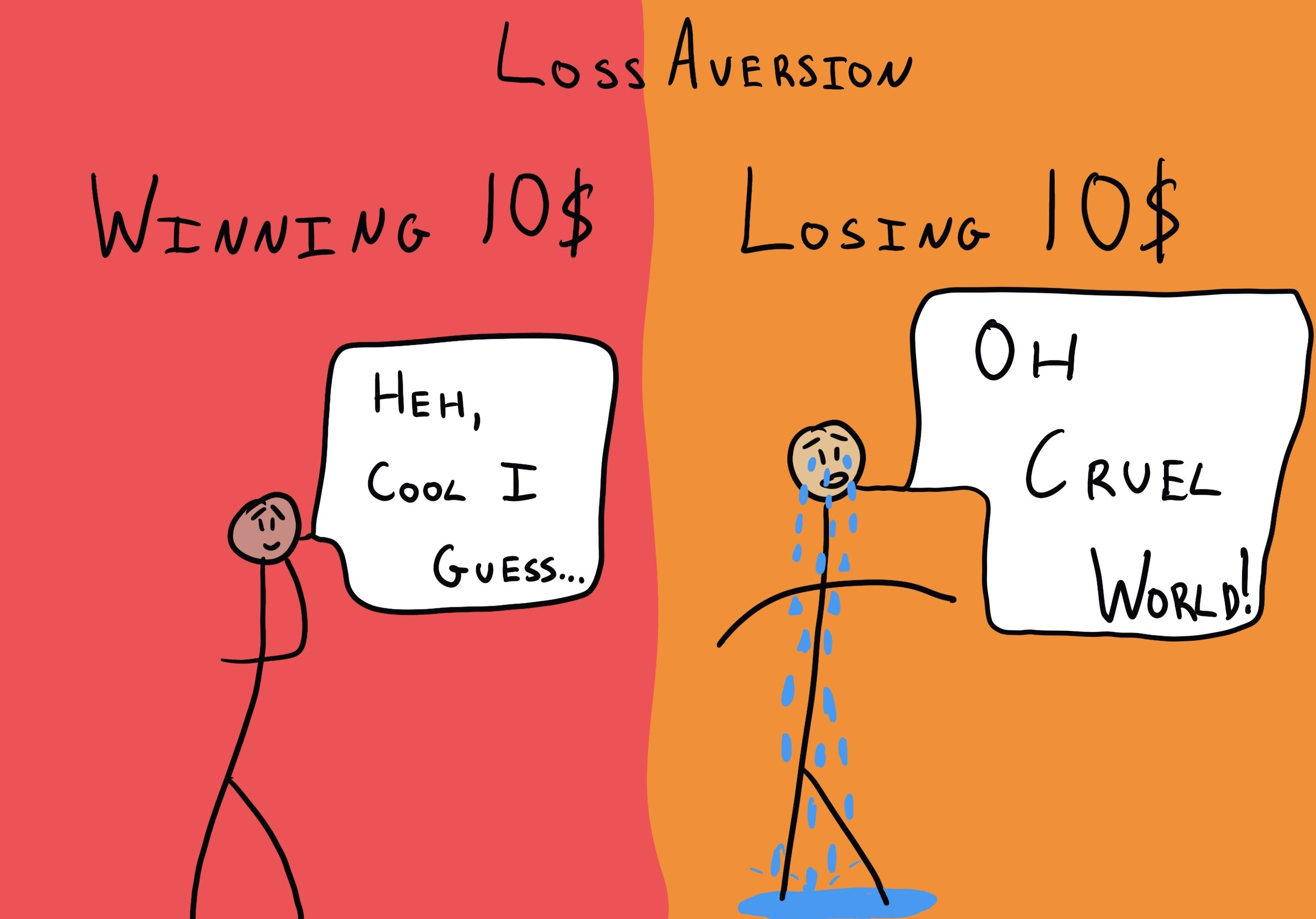Loss aversion is a cognitive bias that refers to the tendency of individuals to prefer avoiding losses over acquiring equivalent gains. In other words, people often feel the pain of losses more strongly than the pleasure of equivalent gains. This bias has significant implications for decision-making, risk-taking, and economic behavior.
Explanations:
Loss aversion is rooted in the idea that people have evolved to prioritize self-preservation. Avoiding losses has historically been more important for survival than acquiring gains. As a result, losses are associated with negative emotions, such as fear and regret.
Examples:
Investment Choices: An investor may be more likely to sell winning stocks to lock in gains (even if there’s more potential for profit) and hold onto losing stocks in the hope that they will bounce back.
Price Negotiations: In negotiations, individuals might be more inclined to accept a slightly unfavorable deal if they feel that rejecting it would be a loss, even if a better offer is available.
Consumer Decisions: Shoppers might cling to old, worn-out possessions instead of replacing them because they emotionally value what they have, even if it’s no longer functional.
Solutions:
Rational Evaluation: When making decisions, strive to evaluate the potential gains and losses objectively. Consider the long-term impact and the actual value of what’s at stake.
Emotional Awareness: Be mindful of your emotional responses to potential losses. Understanding that these feelings are a result of loss aversion can help you make more rational choices.
Risk Management: In situations where the potential for loss is high, consider risk management strategies, such as setting stop-loss orders in investing or contingency plans in business.
Frame Choices Positively: When presenting options to yourself or others, frame them in a way that highlights potential gains and minimizes the focus on potential losses.
By addressing loss aversion, individuals can make more rational decisions and avoid being overly influenced by the fear of loss, which may prevent them from pursuing opportunities and growth.
